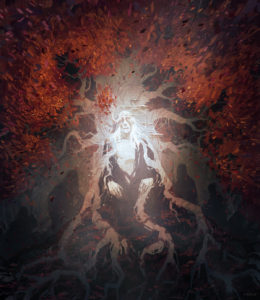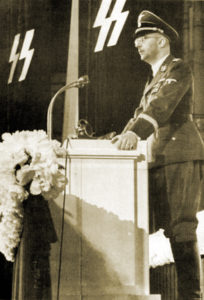As I came down with the flu three days ago, I have postponed for a while resuming my series on Simms’ revisionist book on Hitler, since it requires special attention. On this day, when I am still suffering from cold symptoms, I prefer to quote what our friend Gaedhal tells us in his latest email:
If Apologetics is lies and distortion—and it is—then that makes apologists liars and distortors.
In my view, Apologists are essentially drug dealers. They supply the brain chemicals that desperate people need, so as to stay sane in this cruel life. Apologists sell dopamine, and other pleasant brain chemicals. Apologetics is not a respectable profession, in my view.
In the same way that there will be an illicit drug trade for as long as people need to self medicate, likewise, religion will exist so long as people think that they need assistance from beyond the veil. Apologists sell a comforting delusion to desperate people. The way to ultimately put apologists out of business is to make people less desperate. As people become less desperate, they become less religious. We see this in Japan, and Scandanavia. However, America is a predatory capitalist hellscape, and so it is no wonder why Americans feel that they need help from an imaginary Celestial Zion.
I saw Michael Heiser doing genocide apologetics… and yet Tabor and Derek Lambert had a memorial service for this scoundrel. The Jewish exceptionalism that we see, today, in Palestine, would not be possible were it not for Christian genocide apologists like Craig, Copan and Heiser.
The fact—as we well know—is that Yahweh deposed Saul because he did allow some goyim to live. David was a man after Yahweh’s own heart, because he would always exterminate the goyim thoroughly. But no: we are fedora-wearing village atheists—according to Heiser’s thumbnail—if we insist on this. Fuck this guy—even if he did die of cancer. Biblical Genocide apologists are the scum of the earth. Heiser’s career translates into real human suffering in places like Gaza.
As Captain Cassidy might put it: if Christianity is an abusive and harmful scam then that makes Christian apologists abusive and harm-causing scam artists.
Technically, I don’t object to what Gaedhal says, but there is something I must clarify.
For a guy who was mistreated by his parents since his teenage years to such an extent that he was left unable to have a career, a good job or even a partner, and who as a defence mechanism decided (to use George R.R. Martin’s fiction) to go into a cave on the other side of the Wall to retrocognitively see the past—his and his parents’ past to understand the tragedy—and to do this until he was half a century old, and only in his fifty-first year to discover white nationalism, it should be obvious that his POV won’t resemble what can be seen on racialist (or non-racialist) forums.
The passion to see the past as it really happened and to let, over the decades, the branches of the Weirwood envelop you to understand not only one’s biographical past but the historical past of Westeros (a metaphor for the West) produces a kind of mutant.

That is why, although technically what Gaedhal tells us is true, I find a fundamental flaw. Gaedhal’s emails will never explain why Christians, or former Christians, have believed such things. Only when one writes one’s psychological autobiography in thousands of pages does one discover why.
I have said that as soon as I finish revising my last book (to which I’ve added a chapter about my mother’s death), I will begin to translate into English what is missing from that psychological autobiography that I have just finished. It is only when someone writes it over the decades that he realises, like the three-eyed raven (‘Bloodraven’), that our parents literally programmed our minds with Christian software.
If those on the racial right weren’t so programmed, but came of age and were made to choose a religion good for Aryan preservation, would the reader believe that these Jew-wise racialists would choose the religion whose holy scriptures were written by Jews for goyim consumption?
Just to ask this question is to answer it! But without a cave on the other side of the Wall, without that long and painful process of initiation into the art of retrocognition, where you virtually leave your humanity behind, without knowing yourself to know the universe and the true Gods, there can be no true wisdom; only mere Gaedhal-like common sense.
In other words, only by knowing ourselves as deeply as this imaginary Bloodraven could one apostatise from the demented religion of our parents. Otherwise, all we have are the semi-apostasies or pseudo-apostasies of liberals (and even Woke folk!) that lead nowhere because they fail to get to the heart of the matter: the structure of the inner Self.






